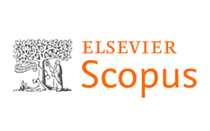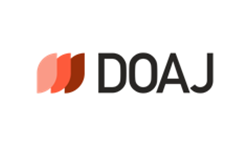ІННОВАЦІЙНІ СТАРТАПИ І ВИКЛИКИ ШТУЧНОГО ІНТЕЛЕКТУ: ВИСНОВКИ З ДОСВІДУ ІТАЛІЇ ТА РУМУНІЇ
Ключові слова:
бізнес-модель, європейська нормативно-правова база, інноваційні стартапи, інтерв’ю, Італія, нормативно-правове середовище, Румунія, штучний інтелект.Анотація
Поєднання інновацій та штучного інтелекту (ШІ) є викликом для компаній, а саме: інноваційних стартапів, які лише починають працювати на ринку. Подібна трансформація підприємницького сценарію, імовірно, визначить нові бізнес-моделі, які вже можна бачити у двох європейських країнах: Італії та Румунії. У цій статті розглянуто інновації у нормативно-правовій базі цих країн, зумовлені появою штучного інтелекту. Окрім того, в статті наведено результати інтерв’ю з керівниками інноваційних стартапів щодо викликів та перспектив галузі. Стаття завершується певними рефлексіями щодо цієї еволюціонуючої нормативно-правової бази, що слугує передумовою для подальших досліджень.
Класифікація за JEL: E23;L25; O31; O33; O38.
Посилання
AI Index, Stanford Institute for Human-Centered Artificial Intelligence. (2023). Chapter 6: Policy and Governance. In Artificial Intelligence Index Report 2023 (p. 1–40). Stanford University. https://aiindex.stanford.edu/wp-content/ uploads/2023/04/HAI_AI-Index-Report-2023_CHAPTER_6-1.pdf
Alahi, Md. E., Sukkuea, A., Tina, F. W., Nag, A., Kurdthongmee, W., Suwannarat, K., & Mukhopadhyay, S. C. (2023). Integration of IoT-enabled technologies and Artificial Intelligence (AI) for smart city scenario: Recent advancements and future trends. Sensors, 23(11), 5206. https://doi.org/10.3390/s23115206
Am, J. B., Furstenthal, L., Jorge, F., & Roth, E. (2020). Innovation in a crisis: Why it is more critical than ever. McKinsey & Company. https://tinyurl.com/55be2myx
Archibugi, D., & Filippetti, A. (2013). Innovation and economic crisis: Lessons and prospects from the economic downturn. Routledge.
Arowolo, M. O., Owolabi, A. O., Bankole-Ajayi, H. O., & Akinyele, O. P. (2023). Exploring the development of a user-friendly home management system with ESP Rainmaker firmware. ABUAD Journal of Engineering Research and Development, 6(2), 122–135. https://doi.org/10.53982/ajerd.2023.0602.12-j
Cockburn, I. M., Henderson, R., & Stern, S. (2018). The impact of artificial intelligence on innovation (NBER Working Paper No. 24449). National Bureau of Economic Research. https://www.nber.org/papers/w24449
Colombelli, A., Paolucci, E., Raguseo, E., & Elia, G. (2023). The creation of digital innovative startups: The role of digital knowledge spillovers and digital skill endowment. Small Business Economics, 62, 917–937. https://doi.org/ 10.1007/s11187-023-00789-9
Croitoru, A. (2021). Diaspora startup programs and creative industries: evidence from Romania. Transylvanian Review of Administrative Sciences, 63(E), 5– 29. http://dx.doi.org/10.24193/tras.63E.1
Daneshjou, R., Smith, M. P., Sun, M. D., Rotemberg, V., & Zou, J. (2021). Lack of transparency and potential bias in artificial intelligence data sets and algorithms: a scoping review. JAMA Dermatology, 157(11), 1362–1369. https://doi.org/10.1001/jamadermatol.2021.3129
Decarolis, F., & Li, M. (2023). Regulating online search in the EU: From the android case to the digital markets act and digital services act. International Journal of Industrial Organization, 90, 102983. https://doi.org/10.1016/ j.ijindorg.2023.102983
Decreto-Legge, n. 179, 18 October 2012. [Ulteriori misure urgenti per la crescita del Paese. (12G0201)]. Gazzetta Ufficiale della Repubblica Italiana, n. 245. (2012, October 19)
Dodu-Gugea, L., (2020). European innovation ecosystem in the context of regional competition. Journal «Economica», 4(114), 88–102. https://ibn.idsi.md/sites/default/files/imag_file/88-102_1.pdf
Du, X., Wang, X., & Hatzenbuehler, P. (2023). Digital technology in agriculture: A review of issues, applications and methodologies. China Agricultural Economic Review, 15(1), 95–108. https://doi.org/10.1108/CAER-01-2022-0009
Edan, Y., Adamides, G., Oberti, R. (2023). Agriculture Automation. In: S. Y. Nof (Ed.), Springer handbook of automation (pp. 1055–1078). Springer Handbooks. Springer, Cham. https://doi.org/10.1007/978-3-030-96729-1_49
European Parliament, Directorate-General for Parliamentary Research Services, Lekadir, K., Quaglio, G., Tselioudis Garmendia, A., & Gallin, K. (2022).
Artificial intelligence in healthcare: Applications, risks, and ethical and societal impacts. European Parliament. https://doi.org/10.2861/568473
Eurostat. (2021). Use of artificial intelligence in enterprises. https://ec.europa.eu/ eurostat/statistics-explained/index.php?title=Use_of_artificial_intelligence_ in_enterprises
Laurent, B. (2024). Innovation monsters in the sandbox. Practicing Anthropology, 46(1), 71–78. https://doi.org/10.1080/08884552.2024.2308437
Martins, J., & Veiga, L. G. (2022). Digital government as a business facilitator. Information Economics and Policy, 60, 100990. https://doi.org/10.1016/ j.infoecopol.2022.100990
McMahon, C. (2022, October 27). The role of artificial intelligence in digital
transformation. PTC. https://www.ptc.com/it/blogs/corporate/artificialintelligence-digital-transformation
Meiseberg, B. (2015). Social capital and start-up performance: The role of
customer capital. In J. Windsperger, G. Cliquet, T. Ehrmann, & G.
Hendrikse (Eds.), Interfirm networks (Ed. 127, p. 125–148). Springer.
https://doi.org/10.1007/978-3-319-10184-2_7
Ministero dello Sviluppo Economico. (2022). Startup e PMI innovative – Online in Dati Secondo Trimestre 2022 [Innovative startups and SME – online in Data for Second Quarter 2022]. https://www.mise.gov.it/index.php/it/notiziestampa/startup-e-pmi-innovative-online-i-dati-del-secondo-trimestre-2022
Mocanu, D., & Thiemann, M. (2023). Breeding ‘unicorns’: Tracing the rise of the European investor state in the European venture capital market. Competition & Change, 0(0). https://doi.org/10.1177/10245294231204984
Naudé , W., Gries, T., Wood, E., & Meintjies, A. (2008). Regional determinants of entrepreneurial start-ups in a developing country. Entrepreneurship and regional development, 20(2), 111–124. https://doi.org/10.1080/08985620701631498
Navarro, R. (2023, July 27). Generative AI Global Interest Report 2023.
ElectronicsHub. interest-report-2023/ https://www.electronicshub.org/generative-ai-global
Orlova, L., Gagarinskaya, G., Gorbunova, Y., & Kalmykova, O. (2018). Start-ups in the field of social and economic development of the region: A cognitive model. Entrepreneurship and Sustainability Issues, 5(4), 795–811. https://doi.org/10.9770/jesi.2018.5.4(7)
Oyarzo, M., Romaní, G., Atienza, M., & Lufín, M. (2020). Spatio-temporal dynamics in municipal rates of business start-ups in Chile. Entrepreneurship & Regional Development, 32(9-10), 677–705. https://doi.org/10.1080/08985626.2020.1743769
Parlamentul României. (2004). Lege nr. 346 din 14 iulie 2004 privind stimularea înființării și dezvoltării întreprinderilor mici și mijlocii [Law No. 346 of 14 July 2004 on stimulating the establishment and development of small and medium-sized enterprises]. Monitorul Oficial al României, nr. 681, 29 iulie 2004. https://legislatie.just.ro/Public/DetaliiDocumentAfis/53946
Stuurman, K., & Lachaud, E. (2022). Regulating AI. A label to complete the proposed Act on Artificial Intelligence. Computer Law & Security Review, 44. https://doi.org/10.1016/j.clsr.2022.105657
Susilo, D. (2020). Scalable start-up entrepreneurship and local economic development in emerging economies. Applied Economics Journal, 27(2), 145–163. https://www.researchgate.net/publication/344311413_Scalable_ Start-up_Entrepreneurship_and_Local_Economic_Development_in_Emerging _Economies
Tiwari, N., & Dubey, P. (2023). A study on Indian startup ecosystem: Understanding public perception and government schemes. IRE Journals, 6(12), 1048–1053. https://www.irejournals.com/formatedpaper/1704772.pdf
Truby, J. M., Brown, R. D., Ibrahim, I. A., & Parellada, O. C. (2022). A sandbox approach to regulating high-risk artificial intelligence applications. European Journal of Risk Regulation, 13, 270–294. https://doi.org/10.1017/err.2021.52
Turillazzi, A., Taddeo, M., Floridi, L., & Casolari, F. (2023). The digital services act: an analysis of its ethical, legal, and social implications. Law, Innovation and Technology, 15(1), 83–106. https://doi.org/10.1080/17579961.2023.2184136
Wenzel, M., Stanske, S., & Lieberman, M. B. (2021). Strategic responses to crisis. Strategic Management Journal, 42(2), O16-O27. https://doi.org/ 10.1002/smj.3161
Widayanti, R., & Meria, L. (2023). Business modeling innovation using artificial intelligence technology. International Transactions on Education Technology, 1(2), 95–104. https://doi.org/10.33050/itee.v1i2.270
World Intellectual Property Organization. (2019). WIPO Lex [Online Database]. Retrieved October 30, 2019, from https://wipolex.wipo.int/en/legislation/ profile/RO
World International Property Organization. (2022). Global Innovation Index 2022: What is the future of innovation-driven growth? Geneva: WIPO. https://doi.org/10.34667/tind.46596
Yordanova, K., & Bertels, N. (2024). Regulating AI: Challenges and the way forward through regulatory sandboxes. In H. Sousa Antunes, P.M. Freitas, A.L. Oliveira, C. Martins Pereira, E. Vaz de Sequeira, & L. Barreto Xavier (Eds.), Multidisciplinary perspectives on artificial intelligence and the law. Law, Governance and Technology Series (Vol. 58, p. 441–456). Springer, Cham. https://doi.org/10.1007/978-3-031-41264-6_23
Zheng, Y., & Wu, X. (2024). Fostering fintech innovation: A tripartite evolutionary game analysis of regulatory sandbox experiments. International Review of Economics and Finance, 92, 1302–1320. https://doi.org/10.1016/j.iref.2024.02.060
##submission.downloads##
Опубліковано
Як цитувати
Номер
Розділ
Ліцензія
Автори, які публікуються у цьому журналі, погоджуються з наступними умовами:
- Автори залишають за собою право на авторство своєї роботи та передають журналу право першої публікації цієї роботи на умовах ліцензії Creative Commons Attribution License, котра дозволяє іншим особам вільно розповсюджувати опубліковану роботу з обов'язковим посиланням на авторів оригінальної роботи та першу публікацію роботи у цьому журналі.
- Автори мають право укладати самостійні додаткові угоди щодо неексклюзивного розповсюдження роботи у тому вигляді, в якому вона була опублікована цим журналом (наприклад, розміщувати роботу в електронному сховищі установи або публікувати у складі монографії), за умови збереження посилання на першу публікацію роботи у цьому журналі.
- Політика журналу дозволяє і заохочує розміщення авторами в мережі Інтернет (наприклад, у сховищах установ або на особистих веб-сайтах) рукопису роботи, як до подання цього рукопису до редакції, так і під час його редакційного опрацювання, оскільки це сприяє виникненню продуктивної наукової дискусії та позитивно позначається на оперативності та динаміці цитування опублікованої роботи (див. The Effect of Open Access).








